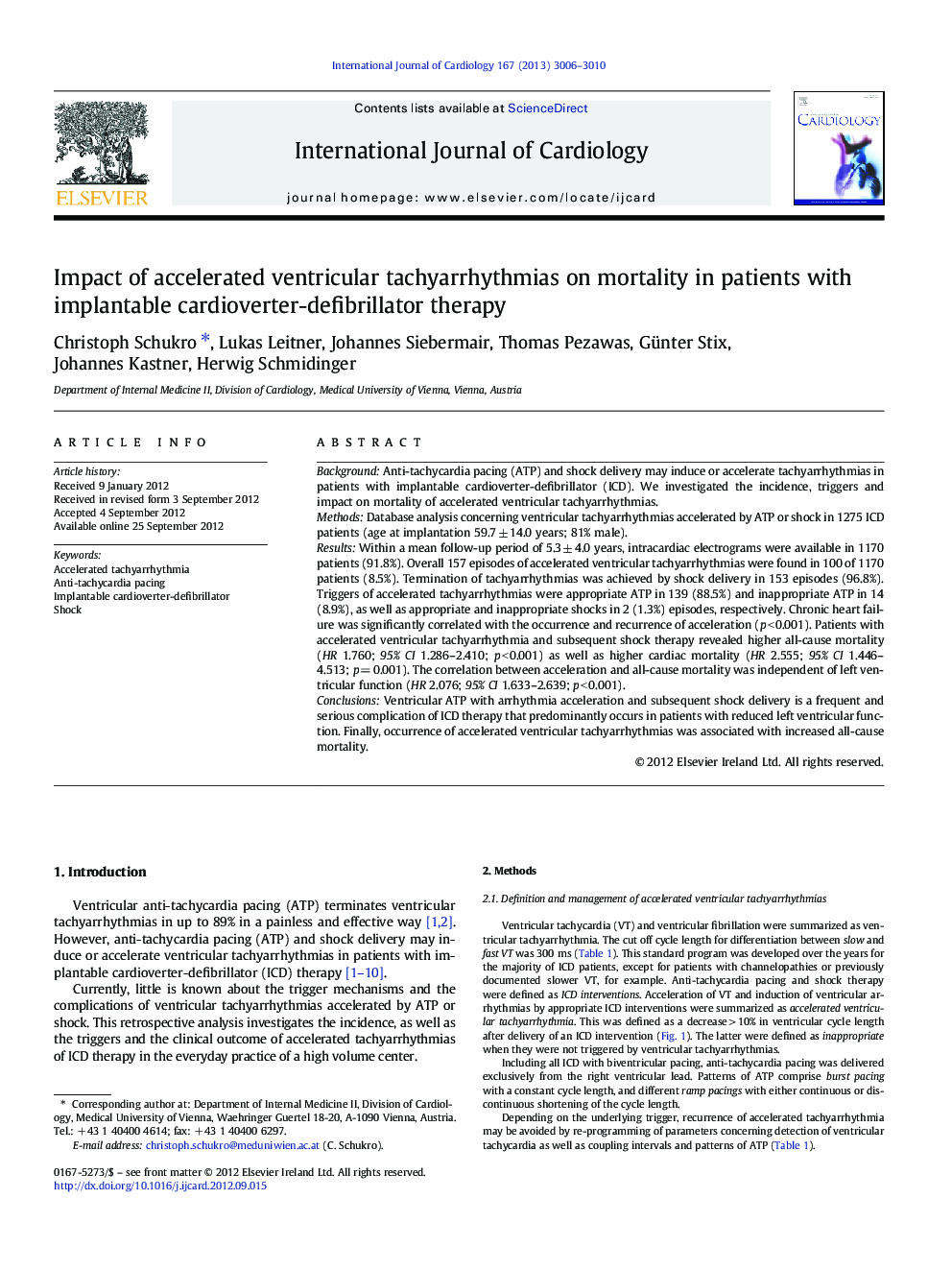| Article ID | Journal | Published Year | Pages | File Type |
|---|---|---|---|---|
| 5974710 | International Journal of Cardiology | 2013 | 5 Pages |
BackgroundAnti-tachycardia pacing (ATP) and shock delivery may induce or accelerate tachyarrhythmias in patients with implantable cardioverter-defibrillator (ICD). We investigated the incidence, triggers and impact on mortality of accelerated ventricular tachyarrhythmias.MethodsDatabase analysis concerning ventricular tachyarrhythmias accelerated by ATP or shock in 1275 ICD patients (age at implantation 59.7 ± 14.0 years; 81% male).ResultsWithin a mean follow-up period of 5.3 ± 4.0 years, intracardiac electrograms were available in 1170 patients (91.8%). Overall 157 episodes of accelerated ventricular tachyarrhythmias were found in 100 of 1170 patients (8.5%). Termination of tachyarrhythmias was achieved by shock delivery in 153 episodes (96.8%). Triggers of accelerated tachyarrhythmias were appropriate ATP in 139 (88.5%) and inappropriate ATP in 14 (8.9%), as well as appropriate and inappropriate shocks in 2 (1.3%) episodes, respectively. Chronic heart failure was significantly correlated with the occurrence and recurrence of acceleration (p < 0.001). Patients with accelerated ventricular tachyarrhythmia and subsequent shock therapy revealed higher all-cause mortality (HR 1.760; 95% CI 1.286-2.410; p < 0.001) as well as higher cardiac mortality (HR 2.555; 95% CI 1.446-4.513; p = 0.001). The correlation between acceleration and all-cause mortality was independent of left ventricular function (HR 2.076; 95% CI 1.633-2.639; p < 0.001).ConclusionsVentricular ATP with arrhythmia acceleration and subsequent shock delivery is a frequent and serious complication of ICD therapy that predominantly occurs in patients with reduced left ventricular function. Finally, occurrence of accelerated ventricular tachyarrhythmias was associated with increased all-cause mortality.
